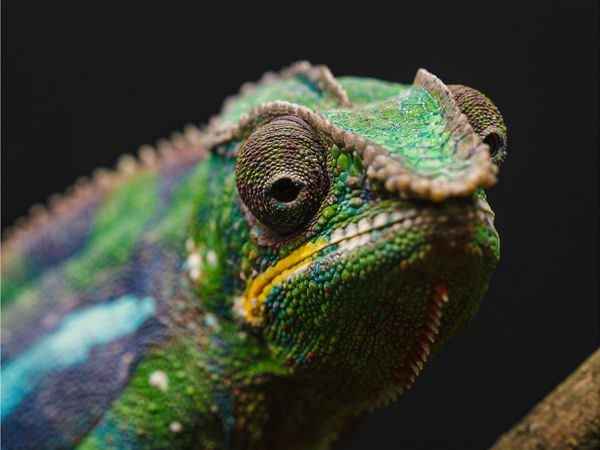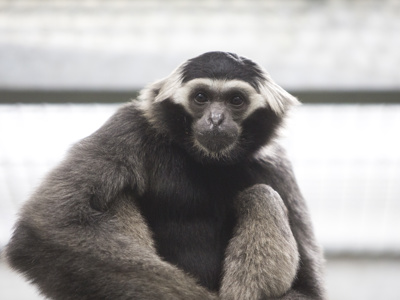
Pileated Gibbon
Pileated gibbons are small apes and, like all apes, they do not have a tail. This is an easy way to tell the difference between apes and monkeys. Pileated gibbons are sexually dimorphic (males and females are different). Males are black with white hands, feet and face crest. Females are blond with a black cap and chest.
Key Facts:
Conservation Status: Endangered
Distribution: Cambodia, Thailand
Habitat: Tropical Forest
Diet: Flowers, Fruit, Insects, Leaves
Height: 44 -45cm
Weight: 6.5 – 10kg
Gestation: 6.5 months
No. of young: 1
Life Span: 40 years
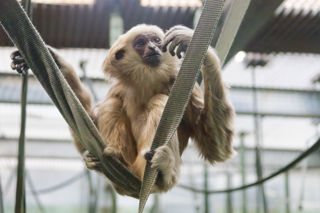
Pileated gibbons have long arms that they use to hang from branches and swing through trees. This swinging movement is called brachiation. Each family group retains their own territory through loud vocalisations known as singing. The male and female perform a duet, with the female’s call being the louder one. In the wild they spend an average of 16 hours a day sleeping!
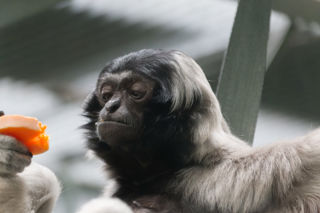
They live in socially monogamous pairs so the male and a female live together and rear their offspring together. Breeding occurs throughout the year. The infant will stay with its parents until it is around eight years old.
Pileated gibbons eat mainly fruit but they also eat leaves, flowers and insects.
The main threat facing these gibbons is habitat loss as wild forest is converted into farmland or used for fuel wood. This has led to local extinctions in some areas. They are also threatened by hunting for meat and the pet trade.
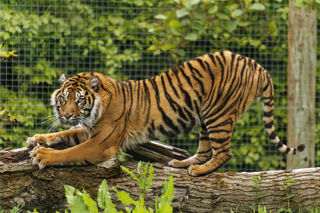
SUPPORT OUR ANIMALS
If you're looking for an alternative way to donate to Twycross Zoo, you can help support our animals and our zoo keepers by purchasing something from our Amazon Wishlist!
Updated regularly by our zoo keepers, the items on the list help to provide enrichment for our animals and keep their habitats well maintained.
Every donation helps us as a conservation charity.
